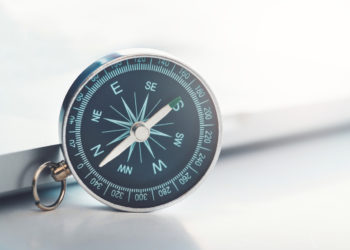Wiley Society Executive Seminar 2021 was held virtually on 11 and 12 November, 2021 with the theme ‘The Society’s Role in Innovation: Impact, Diversity and Open Research’. In its opening plenary session, I talked about ‘Accessibility & Equity in the Ever-Changing World of Open Research’, which is the basis of this article.
The history of academic journal publishing is as old as the history of society journals. These journals have gone through numerous changes over the past 356 years, of course most drastically and rapidly in recent decades. While adapting to unprecedented surges of digital advancement, learned Societies, like their commercial counterparts, have been engaged in conversations and actions on Open Access (OA), or Open Research for that matter. Equity, along with diversity and inclusion, in terms of ability, age, gender identity, geography, race, and sexual orientation, are also increasingly being discussed and acted upon in the scholarly publishing industry. But, when we talk about access to research in an equitable way, it is not only about money, technology, or justice. We also need to ask equitable for whom? Who is going to make it equitable? Where are the areas to intervene? I’ll try to find answers to these questions along three related strands.

First, let’s focus on equity in accessing global research by taking Low- and Middle-Income Countries (LMICs) as stakeholders. Programs, such as the INASP’s PERI (Programme for Enhancement of Research Information) (2001–2013) and Research4Life (since 2002) have been working hard to make sure global research is accessible to the researchers of the Global South. Do we still need such initiatives? In 2020−2021, INASP conducted a study on the users of the Research4Life and found that the program is still relevant, effective, impactful, and needed.
Second, when we look into equity in publishing research by the Southern researchers, the current OA models often come into our discussions. We may debate if an OA model such as article processing charges (APCs) is an opportunity or a barrier to achieving open access in its true sense, although provisions of waivers and discounts on APCs based on the Research4Life country categories indeed help the Southern authors. If the APC models are not the Holy Grail nor a band-aid to cover a much larger inequity issue, they are definitely stepping stones as we travel towards the ultimate free access to knowledge that is sought.
Another aspect in this connection is that the South has many Society and institutional journals which are free to read and publish in. These are often supported by their host institutions or national governments, as they bear relatively small publishing costs and voluntary engagement from the editorial and publication teams. These are, however, widely branded as being of poor quality even though many maintain strong editorial standards. We rarely call them Diamond or Platinum OA. But the situation is changing, and more attention is being given to such journals. Discussions on equity will remain incomplete unless we bring the Southern journals to the table.
Third, recognizing equity as a challenge in Open Research is not the same all over the world. Southern researchers may maintain ‘nationalistic isolation’ by publishing only in their local journals, which are already ‘Open’. Their host institutions’ recruitment and promotion rules may not appreciate the Impact Factors or indexing or Quartile of the journals where they publish, or may even prefer the researchers publish in local journals. Many Southern researchers use North-South collaboration to overcome challenges around OA publishing or APCs. Researchers who are vigilant enough get the benefit of APC waiver policies of good journals, but many fall for predatory journals’ traps in the name of quick and so-called open access publications. But, for many LMICs researchers, OA may not be an issue at all – as long as they publish research with reputable publishers, it doesn’t matter if the papers are in subscription or hybrid journals, and as long as their resumes are getting better (or heavier). So, the Southern researchers may be content with the present state of Open Research and may not think about it the way the North thinks. We need to appreciate this reality.
To bridge the current gap between the North and the South, we need to change our current narratives of equity in Open Research. It should no longer be that the North is drawing or calling the South to join its effort to build an equitable scholarly publishing world. We both need to meet in the middle.
Our Societies in the North and their journals can effectively contribute to this change by realizing five key issues. First, in terms of responsibility towards their respective disciplines, the whole world is the working area of our Societies, not only where they are located. If our journals are to create global impact, then why shouldn’t the other activities of our Societies? Such realization may guide Societies to redefine their visions and scope of work. Second, the conferences our Societies organize need to address subjects beyond science. We need to talk about the dynamic systems and support structures within which knowledge creation and communication work. Irrespective of our disciplines, we need to discuss that equity matters in Open Research. Such conversations cannot be the responsibility of associations of publishers, such as ALPSP, SSP, or STM, alone.
Third, to create a collective narrative of accessibility and equity in Open Research, Societies in the North need to identify regional and international partners to organize dialogues and conversations and to help to contextualize pertinent issues, challenges, and solutions. Fourth, the North could support the South’s understanding of and capacity for editorial standards. They could share their knowledge and experience of why we need policy changes (e.g., in academic recruitment rules), how we can adopt new technologies for our journals by building on open-sourced systems, how indexing can help our journals’ branding, or how to ensure sustainability by exploring relevant financial models, for example.
Fifth, many countries in the Global South are advancing economically, graduating from Low-Income Country to Lower Middle-Income Country to Upper Middle-Income Country status. They not only need to make changes in their budgetary allocations to spend in accessing, conducting and communicating research, but they also need to change the mindset of their policymakers, administrators, and budget-holders at institutional and national levels. The Northern Societies could also support the countries in economic transition to go through such intellectual and visionary transformations.
To do all these things, Societies don’t have to start from the zero. We can harness, capitalize on, and collaborate with organizations and initiatives already working in the scholarly space worldwide. Entities like national and regional societies of our respective disciplines could be a good starting point, so are the national and regional Academies of Sciences (e.g., in Bangladesh, Africa, and Latin America). If we focus on particular groups, like youth or early-career researchers, we can work with, for example, the Global Young Academy and its country chapters (e.g., Bangladesh and Pakistan). Regional initiatives in the South include both experienced (e.g., African Journals Online (AJOL) and Training Centre in Communication (TCC)) and promising examples (e.g., AfricArXiv). We can also collaborate with global platforms working on specific issues (e.g., Least Developed Countries Universities Consortium on Climate Change (LUCCC)) or with smaller entities working on wider spaces (e.g., Center for Sustainable Development (CSD) at the University of Liberal Arts Bangladesh). International agencies based in the North with partners, members, associates, and projects around the globe, such as INASP and the Research4Life, offer a tremendous opportunity, so are the networks, like the Coalition for Diversity & Inclusion in Scholarly Communications (C4DISC).
To improve accessibility and equity in Open Research, we need to transform our outlook and efforts. Installing new technologies, making infrastructural changes, and adopting new policies and practices are vital to increase the value and impact of our Society journals and to ensure our organizational sustainability. These are equally important to advance towards an equitable knowledge ecosystem. To create such an enabling environment, Societies in the North need to look beyond their current networks. We need to learn from and capitalize on a diverse pool of regional and international perspectives and expertise. Such a change in our approach can help us to shape a future, which is sustainable, equitable, and resilient to recessions, pandemics, and climate crisis.
Discussion
1 Thought on "Our Societies, Journals, and the Narrative of Accessibility and Equity in Open Research"
interesting thoughts on the synergies that can pave the way for North South agenda



